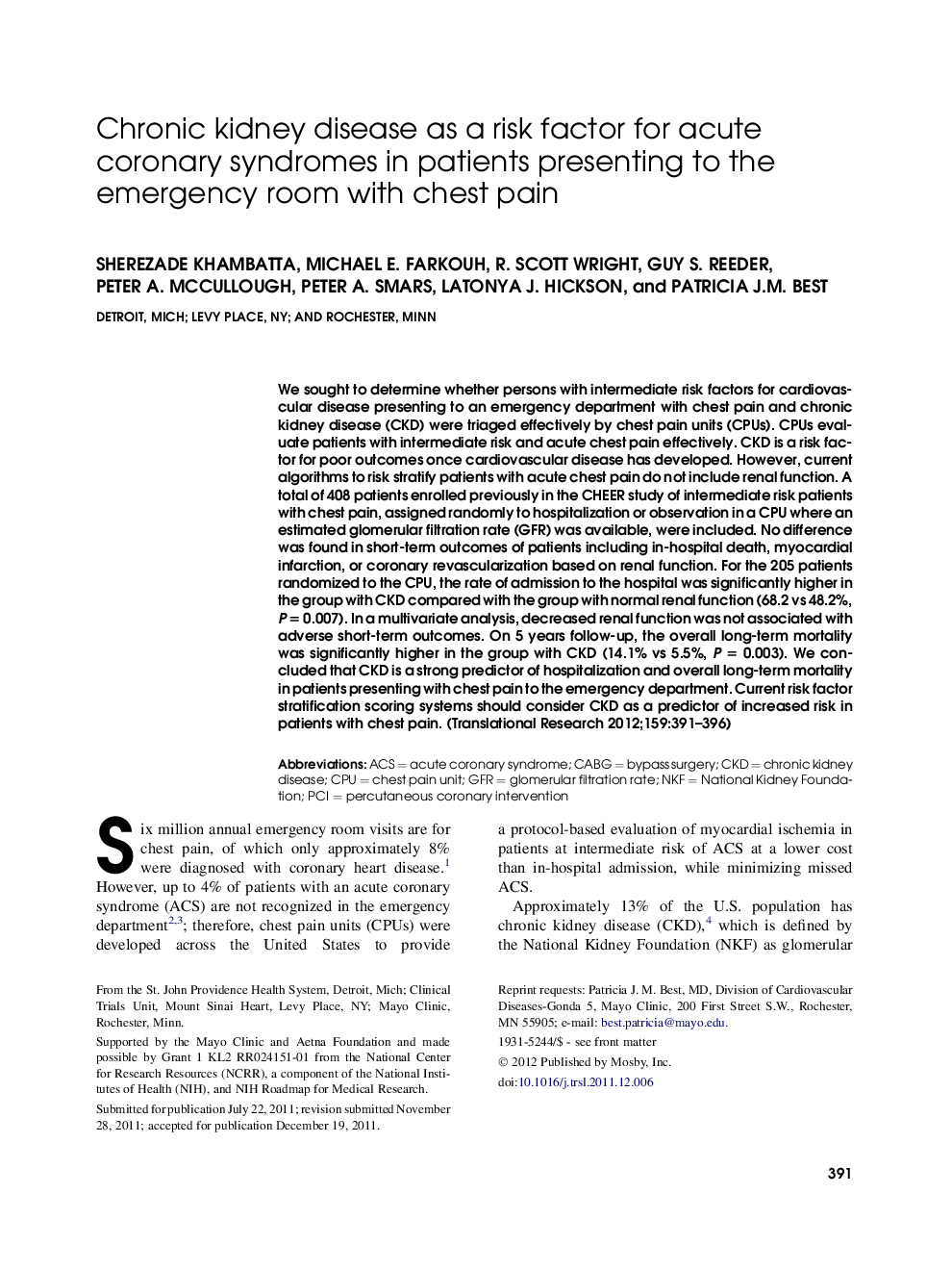| Article ID | Journal | Published Year | Pages | File Type |
|---|---|---|---|---|
| 3840957 | Translational Research | 2012 | 6 Pages |
We sought to determine whether persons with intermediate risk factors for cardiovascular disease presenting to an emergency department with chest pain and chronic kidney disease (CKD) were triaged effectively by chest pain units (CPUs). CPUs evaluate patients with intermediate risk and acute chest pain effectively. CKD is a risk factor for poor outcomes once cardiovascular disease has developed. However, current algorithms to risk stratify patients with acute chest pain do not include renal function. A total of 408 patients enrolled previously in the CHEER study of intermediate risk patients with chest pain, assigned randomly to hospitalization or observation in a CPU where an estimated glomerular filtration rate (GFR) was available, were included. No difference was found in short-term outcomes of patients including in-hospital death, myocardial infarction, or coronary revascularization based on renal function. For the 205 patients randomized to the CPU, the rate of admission to the hospital was significantly higher in the group with CKD compared with the group with normal renal function (68.2 vs 48.2%, P = 0.007). In a multivariate analysis, decreased renal function was not associated with adverse short-term outcomes. On 5 years follow-up, the overall long-term mortality was significantly higher in the group with CKD (14.1% vs 5.5%, P = 0.003). We concluded that CKD is a strong predictor of hospitalization and overall long-term mortality in patients presenting with chest pain to the emergency department. Current risk factor stratification scoring systems should consider CKD as a predictor of increased risk in patients with chest pain.
